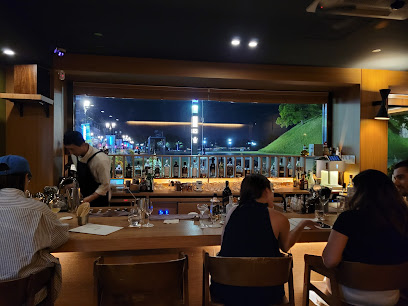
The Majestic Tomb of King Sinmun: A Glimpse into Silla's Royal Heritage
Explore the Tomb of King Sinmun in Gyeongju, a historical treasure reflecting the grandeur of the Silla Dynasty and its royal heritage.
Discover the Tomb of King Sinmun, a remarkable historical site in Gyeongju, South Korea. This ancient tomb offers a fascinating insight into the Silla Dynasty's royal legacy, surrounded by serene landscapes and rich cultural significance.
A brief summary to Tomb of King Sinmun of Silla
- 453-1 Baeban-dong, Gyeongju-si, Gyeongsangbuk-do, 38082, KR
Local tips
- Visit during early morning or late afternoon for the best lighting and fewer crowds.
- Wear comfortable shoes, as the pathways can be uneven.
- Don't forget your camera; the scenic views around the tomb are stunning.
- Take a guided tour to gain deeper insights into the history of the Silla Dynasty.
- Check local events, as cultural performances sometimes take place near the tomb.
Getting There
-
Walking
From any point in Bomun-dong, head towards Bomun Lake. You can follow the lakeside path for a scenic route. Walk towards the east side of the lake until you reach the intersection with the main road, which is called Dongbu-ro. Once you reach Dongbu-ro, turn right and continue walking. After approximately 1.5 kilometers, you will come across the entrance to the Tomb of King Sinmun of Silla on your left at 453-1 Baeban-dong. The walk should take around 20-30 minutes depending on your pace.
-
Public Bus
Locate the nearest bus stop in Bomun-dong. Board Bus No. 10 or 11, both of which head towards Gyeongju city center. Stay on the bus for about 10 minutes, then get off at the stop called 'Baeban-dong.' From there, it is a short 5-minute walk to the Tomb of King Sinmun, which will be about 400 meters straight ahead. The bus fare is approximately 1,200 KRW.
-
Bicycle Rental
If you prefer a more active approach, consider renting a bicycle from one of the rental shops in Bomun-dong. Cycle along the paths around Bomun Lake, heading towards the east side. Continue until you reach Dongbu-ro, where you will turn right and proceed for about 1.5 kilometers. The Tomb of King Sinmun will be on your left. This option allows you to enjoy the scenery and take in the fresh air while getting to your destination.
Discover more about Tomb of King Sinmun of Silla
Iconic landmarks you can’t miss
Gyeongju Nangsan
0.7 km
Explore Gyeongju Nangsan, a historical site rich in cultural heritage and stunning views, perfect for every traveler seeking tranquility in South Korea.
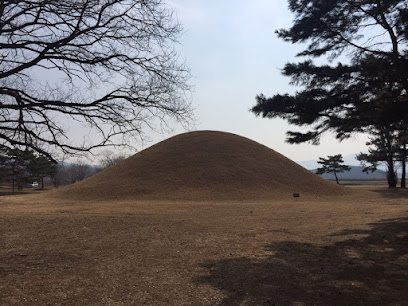
Seondeogyeowangneung Royal Tomb of Queen Seondeok
0.7 km
Discover the majestic Seondeogyeowangneung Royal Tomb in Gyeongju, a UNESCO World Heritage site that encapsulates the grandeur of Korea's Silla Dynasty.
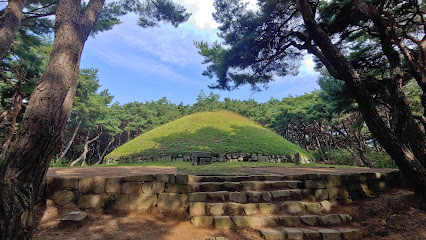
경주 헌강왕릉
1.8 km
Discover the serenity and artistry of Seokguram Grotto, a UNESCO World Heritage Site showcasing the best of Silla Dynasty's Buddhist heritage in Gyeongju.
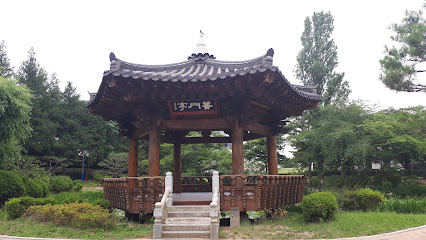
경주 헌강왕릉
1.8 km
Discover Gyeongju, South Korea's ancient capital, where historical wonders and cultural treasures await every traveler.
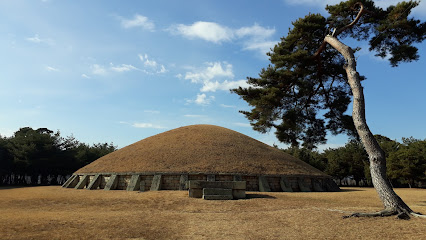
Sangseojang Residence
2.1 km
Explore Sangseojang Residence, a historical jewel in Gyeongju-si, showcasing traditional Korean architecture and tranquil gardens.
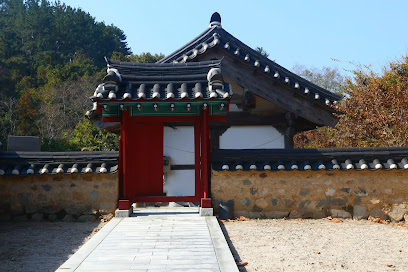
Bell of King Seongdeok (Emile Jong)
2.2 km
Discover the historical significance and artistic beauty of the Bell of King Seongdeok, a cornerstone of Korea's cultural heritage in Gyeongju.
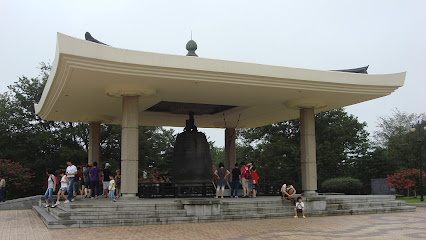
Bunhwangsa
2.8 km
Discover the tranquility and historical significance of Bunhwangsa, a stunning Buddhist temple in Gyeongju, rich in cultural heritage.
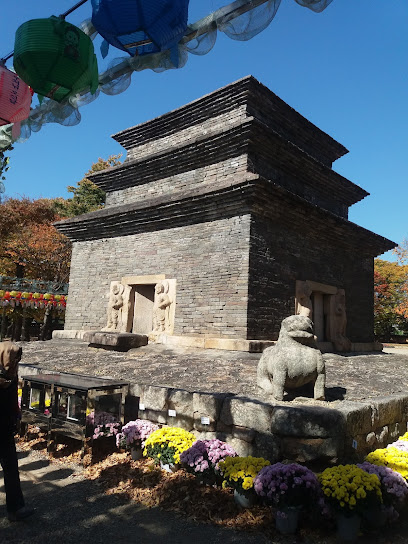
경주 사마소
3.1 km
Discover the ancient wonders of Gyeongju, a historic gem of South Korea filled with royal tombs, temples, and cultural treasures.
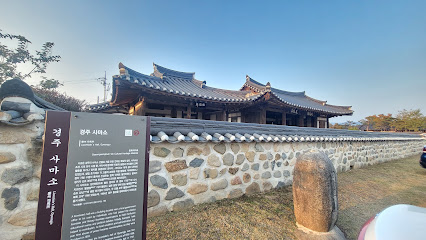
Ancient Tombs in Inwang-dong, Gyeongju
3.2 km
Unveil the secrets of the past at the Ancient Tombs of Inwang-dong, Gyeongju, where history and nature intertwine in a tranquil setting.
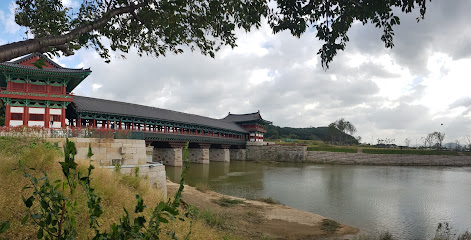
대릉원입구
3.4 km
Discover Gyeongju, South Korea's ancient capital, rich in history, culture, and breathtaking landscapes, perfect for an unforgettable travel experience.
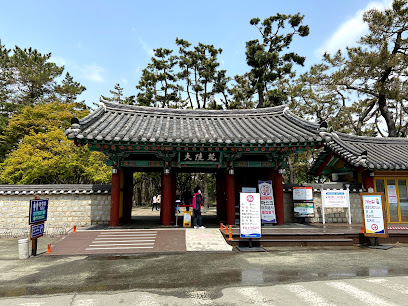
Oreung Royal Tombs
3.4 km
Discover the Oreung Royal Tombs in Gyeongju, a UNESCO World Heritage site steeped in ancient Korean history and serene natural beauty.
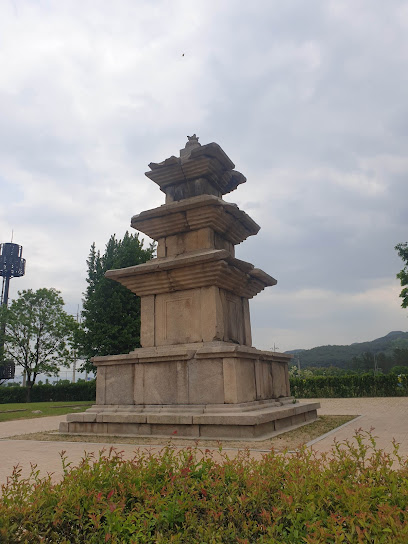
경주황남동고분군
3.6 km
Discover the ancient tombs of Gyeongju, a UNESCO World Heritage site, and immerse yourself in Korea's rich history and culture.
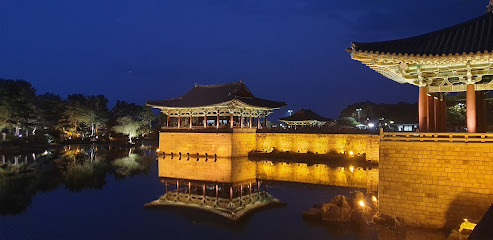
경주황남동고분군
3.6 km
Discover Gyeongju's rich heritage at this enchanting preservation site, where history and nature harmoniously intertwine.
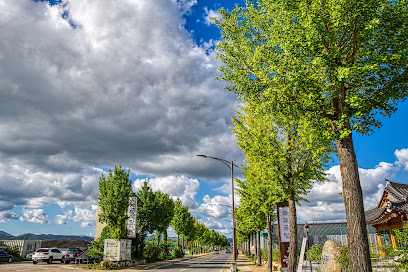
경주 남고루
3.7 km
Explore Gyeongju's Seongdong Lake Park: a historical gem surrounded by nature, perfect for a tranquil getaway and cultural immersion.
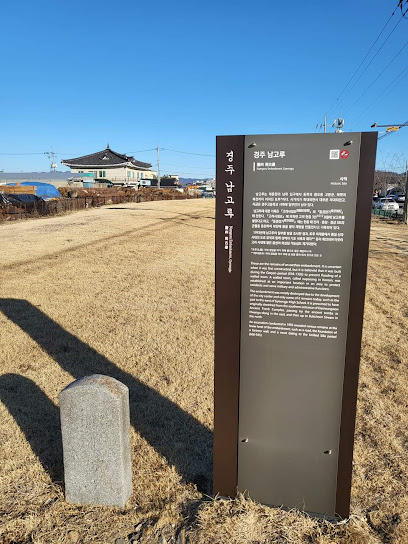
경주 남고루
3.7 km
Discover Gyeongju, the heart of Korea's ancient history, where every stone tells a story and every site is a window into the past.
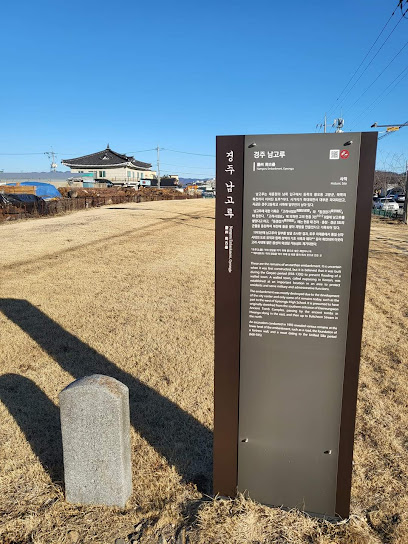
Unmissable attractions to see
Mangdeok Temple Site, Gyeongju
0.3 km
Discover the serenity and historical significance of Mangdeok Temple Site in Gyeongju, a UNESCO World Heritage Site rich in Korea's cultural heritage.
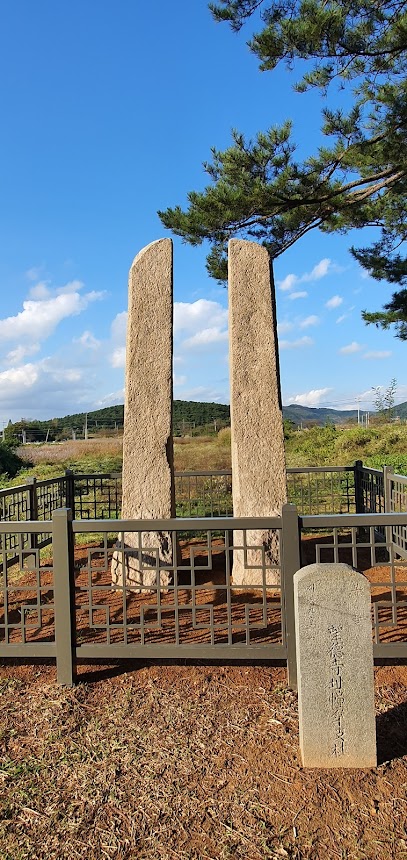
Sacheonwangsa Temple Site, Gyeongju
0.4 km
Explore the tranquility and historical significance of the Sacheonwangsa Temple Site in Gyeongju, a hidden gem of South Korea's cultural heritage.
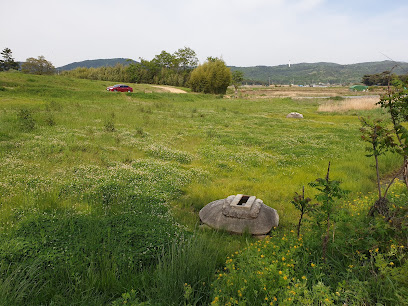
Gyeongbuk Millennium Forest Gardens
0.8 km
Explore the serene beauty of Gyeongbuk Millennium Forest Gardens in Gyeongju, a tranquil escape filled with lush gardens and vibrant flowers.
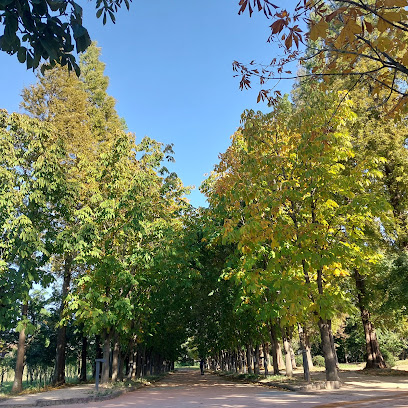
Gyeongju National Museum
2.1 km
Explore the treasures of Korea's history at Gyeongju National Museum, home to invaluable artifacts from the Silla Dynasty.
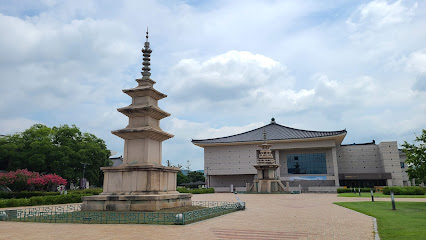
Tongiljeon
2.3 km
Discover the tranquil beauty of Tongiljeon, a lush park in Gyeongju, where nature meets history in a serene retreat.
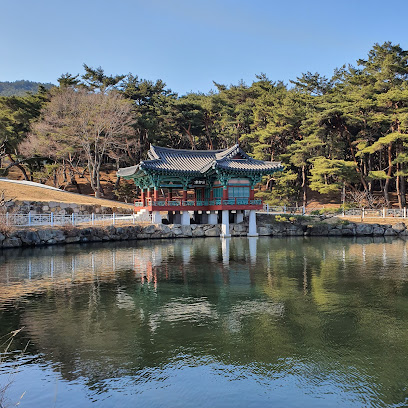
Seochulji Pond
2.4 km
Discover tranquility and rich history at Seochulji Pond, Gyeongju's serene oasis with ancient charm and stunning landscapes.
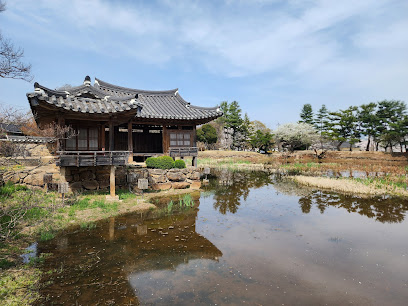
Hwangnyongsa Temple Site
2.5 km
Discover the historical grandeur of Hwangnyongsa Temple Site, a serene sanctuary reflecting Korea's rich Buddhist heritage.
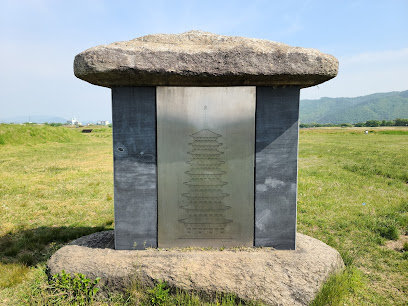
Donggung Palace & Wolji Pond
2.5 km
Experience the tranquil beauty and rich history of Donggung Palace & Wolji Pond in Gyeongju, a must-visit for any cultural traveler.
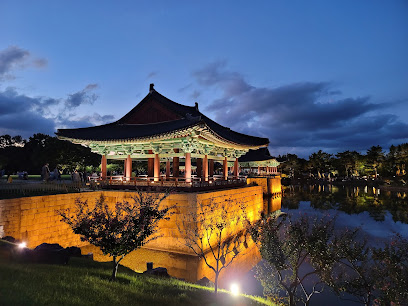
Wolseong Fortress
2.6 km
Discover the historic charm of Wolseong Fortress in Gyeongju, a UNESCO World Heritage site showcasing Korea's rich cultural past.
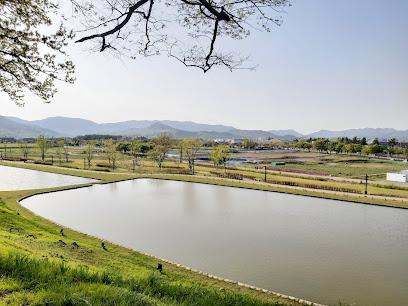
Seokbinggo (Stone Ice Storage)
2.6 km
Explore Seokbinggo, a historical ice storage marvel in Gyeongju, revealing ancient Korean preservation techniques amidst serene landscapes.
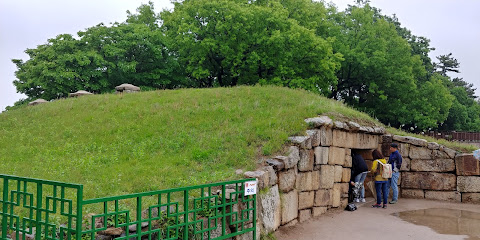
Hwangnyongsa History Culture
2.6 km
Explore Korea's ancient heritage at Hwangnyongsa History Culture, a captivating archaeological museum in Gyeongju showcasing Silla Dynasty treasures.
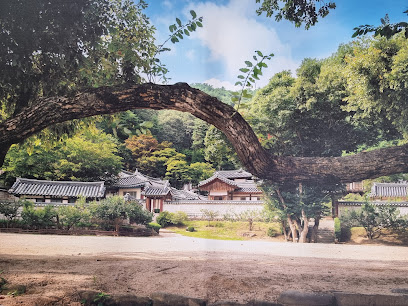
Bunhwangsa Temple and Stone Brick Pagoda
2.8 km
Explore the serene Bunhwangsa Temple in Gyeongju, a historical Buddhist site showcasing stunning architecture and peaceful surroundings.
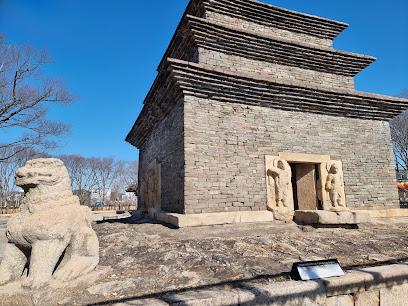
Gyeongju Lotus Complex
2.8 km
Experience the serene beauty of Gyeongju Lotus Complex, a tranquil oasis of lotus flowers and rich cultural heritage in South Korea.
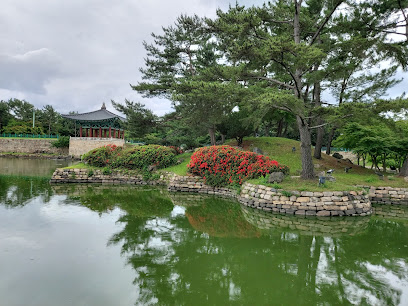
Banwolseong Fortress
2.8 km
Discover the historical beauty of Banwolseong Fortress, a serene and captivating landmark located in Gyeongju, South Korea.
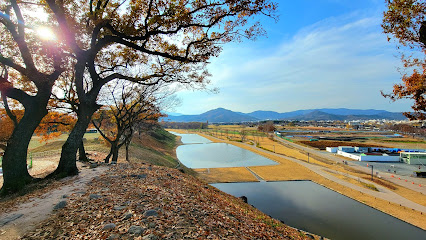
Gyeongju Historic Site Wolseong District
2.8 km
Explore the historic Wolseong District in Gyeongju, where ancient Silla architecture and serene landscapes create a captivating travel experience.
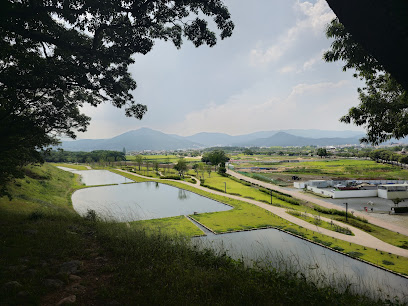
Essential places to dine
토함혜
1.1 km
Experience authentic Korean cuisine at Tohamhye in Gyeongju - where tradition meets taste in every dish.
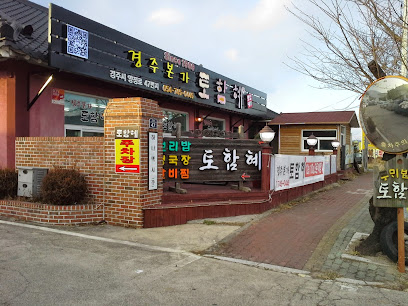
유황오리전문점남촌
1.7 km
Savor authentic Korean duck delicacies in Gyeongju's charming atmosphere at 유황오리전문점남촌.
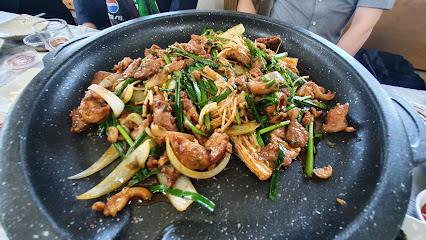
Yeo Gi Dang
2.5 km
Experience the essence of authentic Korean cuisine at Yeo Gi Dang in Gyeongju - a culinary journey through tradition and flavor.
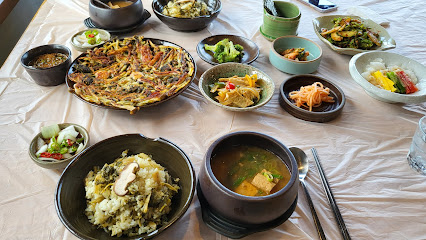
달개비
2.6 km
Experience authentic Korean cuisine at 달개비 in Gyeongju – where tradition meets flavor in every dish.
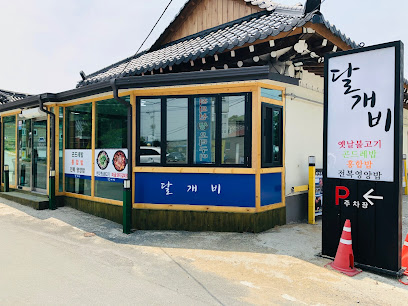
나현숯불생오리
2.8 km
Indulge in authentic Korean barbecue at 나현숯불생오리 in Gyeongju-si, where fresh ingredients meet rich tradition.
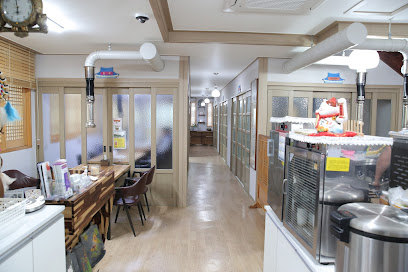
우마왕 본점
2.9 km
Experience authentic Korean cuisine at 우마왕 본점 in Gyeongju-si – where every dish tells a story.
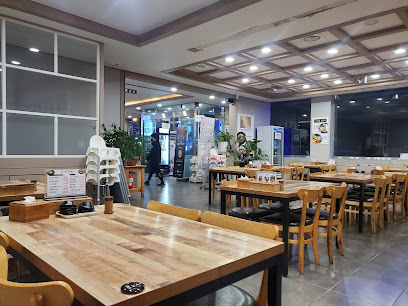
요석궁 1779
3.0 km
Discover the exquisite flavors of traditional Korean cuisine at 요석궁 1779 in Gyeongju - a culinary gem serving authentic Hanjeongsik.
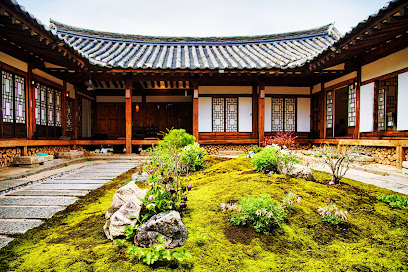
Venzamas
3.0 km
Experience the best of Gyeongju's brunch scene at Venzamas – where innovative cuisine meets local flavors.
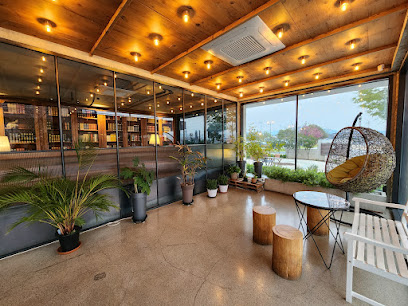
진수성찬
3.1 km
Discover authentic Korean flavors at 진수성찬 in Gyeongju-si - where tradition meets taste.
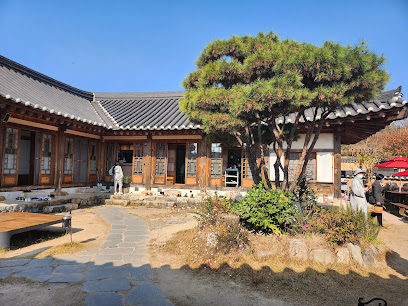
Arirang Restaurant
3.1 km
Experience authentic Korean flavors at Arirang Restaurant in Gyeongju – where tradition meets taste in every dish.
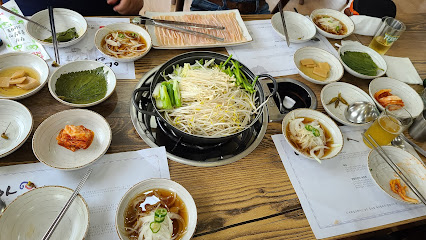
양지식당
3.2 km
Discover the essence of Korean cuisine at Yangji Restaurant in Gyeongju—where tradition meets taste.
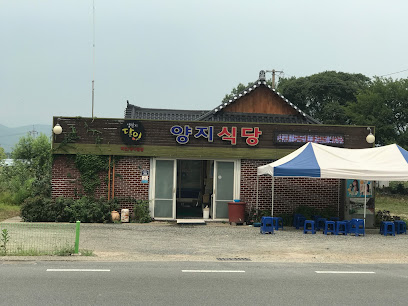
양지식당
3.2 km
Savor authentic Korean cuisine at Yangji Restaurant in Gyeongju – where tradition meets flavor.
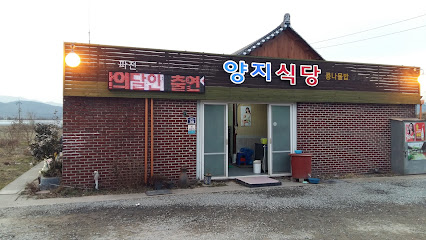
Gyeongju Wonjo Kongguk
3.3 km
Experience authentic Korean cuisine at Gyeongju Wonjo Kongguk, famous for its refreshing kongguk noodles and traditional side dishes.
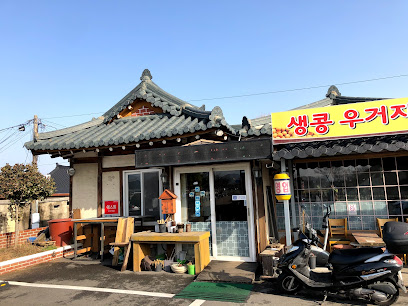
신라회관
3.3 km
Discover authentic ssambap at 신라회관 in Gyeongju-si, where every meal is a celebration of Korean culinary traditions.
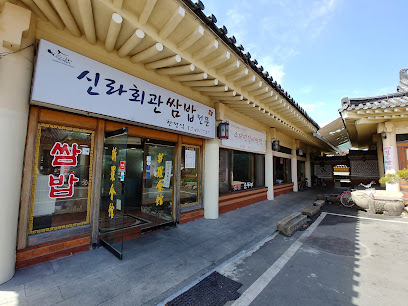
Anima Italian Trattoria
3.3 km
Experience authentic Italian cuisine at Anima Italian Trattoria in Gyeongju - where every meal is a celebration of flavor and tradition.
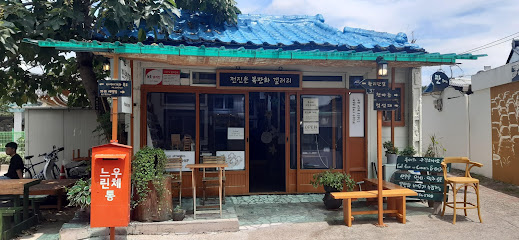
Markets, malls and hidden boutiques
Jeongdowon
0.9 km
Explore Jeongdowon, the premier health food store in Gyeongju-si, offering organic delights and wellness insights for health-conscious travelers.

노을레드블라인드
1.1 km
Explore stylish window treatments at 노을레드블라인드, a unique blinds shop in historic Gyeongju, offering local craftsmanship and modern designs.
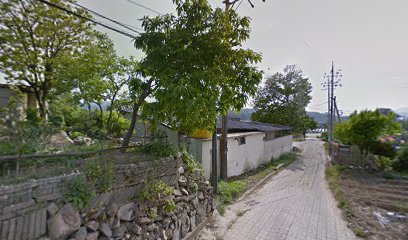
쁘띠지우
1.6 km
Explore 쁧띠지우 in Gyeongju for unique shopping and a taste of local culture amidst the historic beauty of South Korea.

Pulmuwon
2.0 km
Discover Pulmuwon in Gyeongju, a health food store offering organic products and wellness items perfect for health-conscious travelers.

풍금이있는집
3.0 km
Explore 풍금이있는집 in Gyeongju: A boutique where traditional and contemporary women's fashion meets Korean culture.
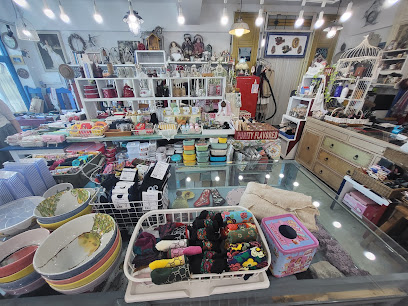
경주 실크로드
3.1 km
Explore the Gyeongju Silk Road for unique souvenirs and a glimpse into Korea's rich cultural heritage.
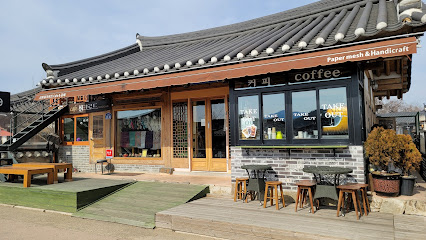
경주 실크로드
3.1 km
Explore 경주 실크로드, a charming gift shop in Gyeongju, offering unique Korean souvenirs that reflect the region's rich culture and history.
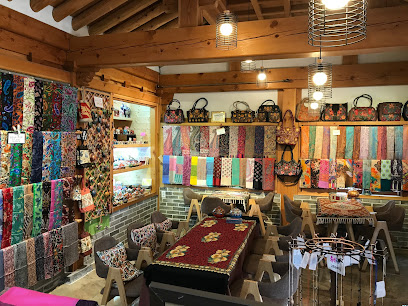
Mimyohan
3.2 km
Explore Mimyohan in Gyeongju for unique gifts and authentic Korean craftsmanship, capturing the essence of South Korea's rich cultural heritage.
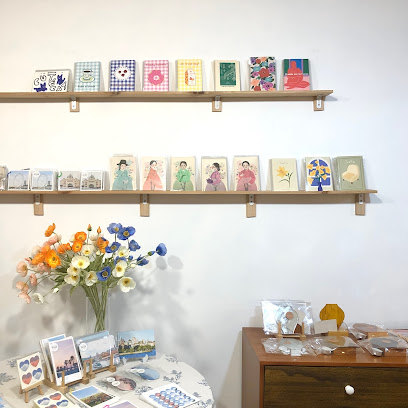
Wiyeonjae
3.2 km
Experience the warmth and charm of Wiyeonjae, a cozy hotel in Gyeongju, South Korea, where comfort meets rich cultural heritage.

신라민예사
3.3 km
Explore the cultural wonders of Gyeongju at 신라민예사, a treasure trove of unique Korean crafts and souvenirs.

한복한하루
3.3 km
Explore the beauty of traditional Korean attire at 한복한하루, a unique clothing store in Gyeongju, where history and fashion merge.
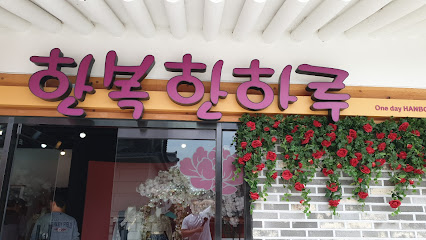
Dress Enjoy 입고놀자
3.3 km
Discover fashion in Gyeongju at Dress Enjoy, where modern trends meet traditional Korean aesthetics for an unforgettable shopping experience.
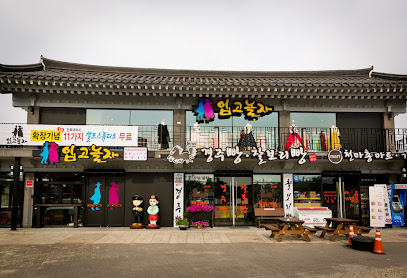
대릉원선물가게
3.3 km
Explore the vibrant charm of Gyeongju at 대릉원선물가게, your go-to destination for unique Korean souvenirs and novelty items.
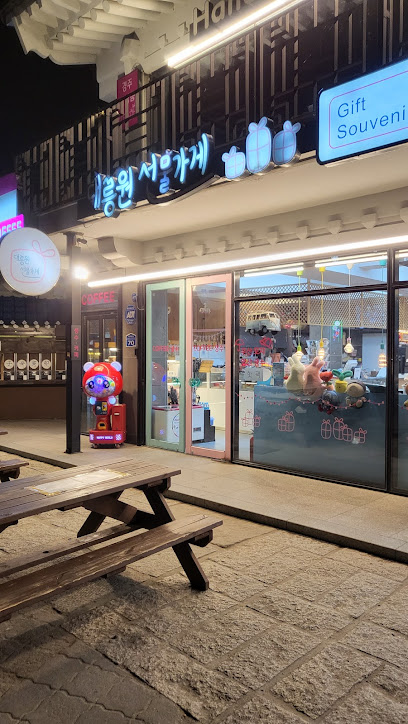
시간상점
3.4 km
Explore unique local crafts and traditional souvenirs at 시간상점, the ultimate shopping destination in Gyeongju.
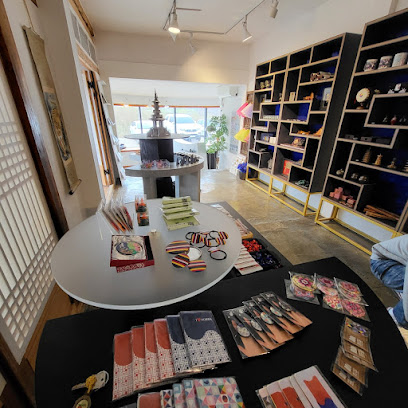
시간상점
3.4 km
Explore 시간상점 for authentic souvenirs and local crafts in the historic heart of Gyeongju, a treasure trove of Korean culture.
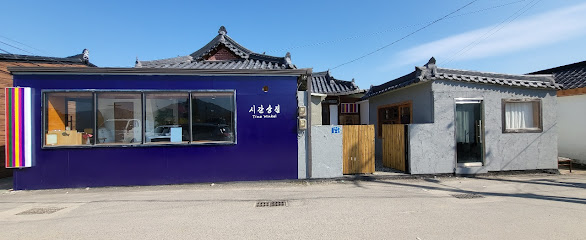
Essential bars & hidden hideouts
달빛에술한모금
3.4 km
Enjoy a unique bar experience at 달빛에술한모금 in Gyeongju-si, blending local flavors with a cozy atmosphere for unforgettable evenings.

Yesterday, Below
3.7 km
Discover Gyeongju's nightlife at Yesterday, Below - a cozy pub offering local brews, lively entertainment, and a welcoming atmosphere.
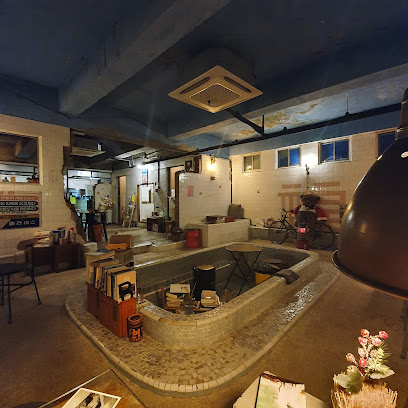
Oni
3.7 km
Discover the vibrant nightlife at Oni, a must-visit bar in Gyeongju, offering exquisite drinks and a lively atmosphere for all to enjoy.
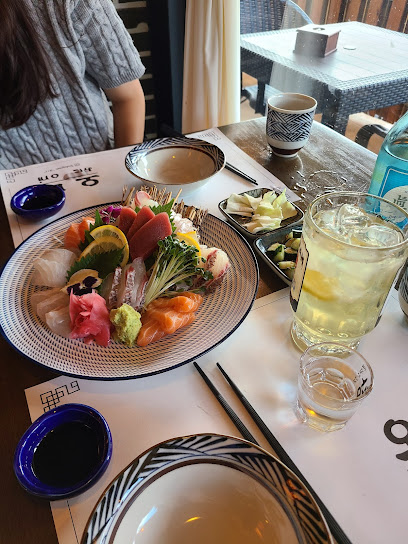
Little Rock
3.7 km
Experience the vibrant nightlife and rich culture of Little Rock, Arkansas, a hidden gem for travelers seeking adventure and charm.
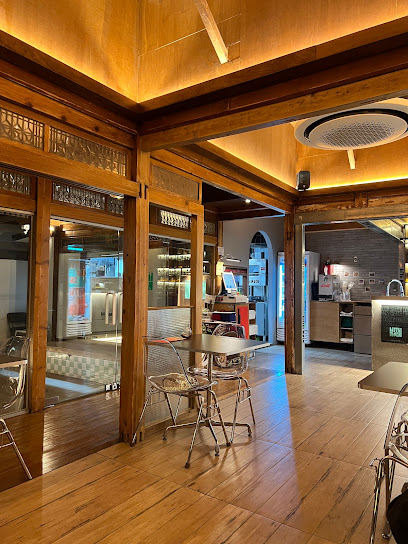
The Backyard
3.8 km
Discover the charm of Gyeongju at The Backyard, where local flavors and a cozy atmosphere come together for an unforgettable bar experience.
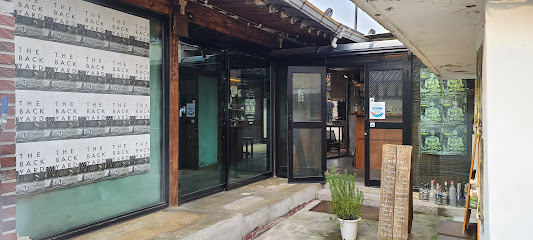
Yakkisim
3.8 km
Experience Gyeongju's nightlife at Yakkisim - a lively bar offering local drinks and a vibrant atmosphere for unforgettable evenings.
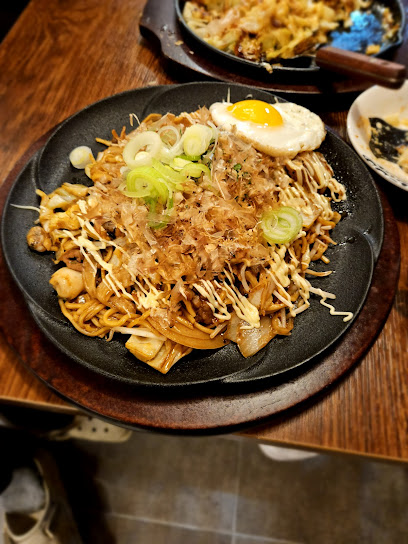
Seogs
3.8 km
Discover Seogs, a charming cocktail bar in Gyeongju, offering unique Korean-inspired cocktails in a cozy atmosphere, perfect for tourists.
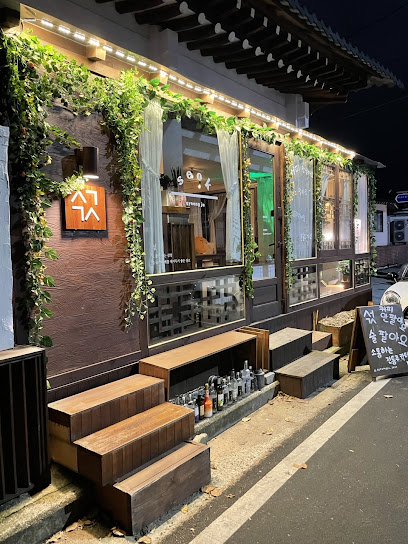
Bar분 (Bar Boon)
3.8 km
Experience the vibrant nightlife and unique Korean-inspired cocktails at Bar분, a local favorite in Gyeongju-si.
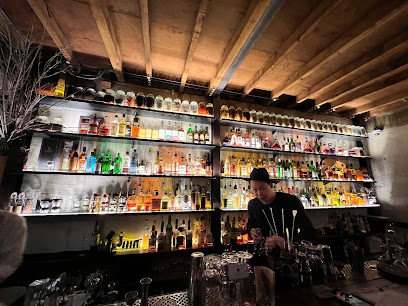
목로 (Mokro)
3.8 km
Discover Mokro: A lively bar in Gyeongju-si, where vibrant nightlife meets exquisite drinks and warm hospitality, perfect for unwinding after a day of exploration.
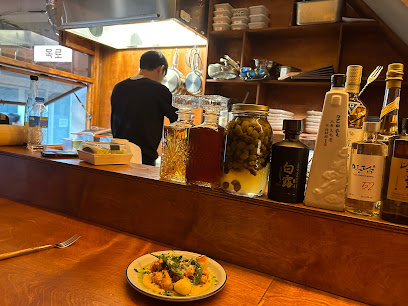
선데이경주
3.9 km
Discover the lively nightlife at 선데이경주, a vibrant bar in Gyeongju-si offering a perfect blend of local and international beverages.

오아시스 경주
4.0 km
Experience the perfect blend of exquisite wines and cozy ambiance at Oasis Gyeongju, a must-visit wine bar in the heart of Korea's ancient city.
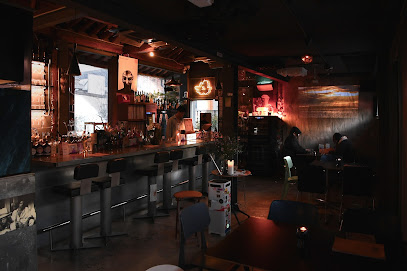
Sweet Moon
4.0 km
Experience the charm of Sweet Moon, Gyeongju's wine bar offering a curated selection of wines and a welcoming atmosphere.
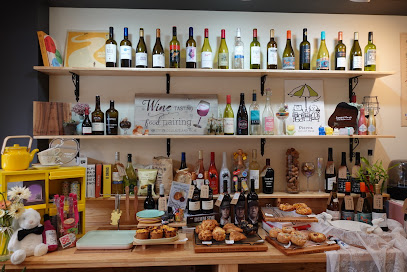
Lajibaeg
4.0 km
Discover the vibrant nightlife of Gyeongju at Lajibaeg, a lively bar offering a mix of local culture and modern drinks.
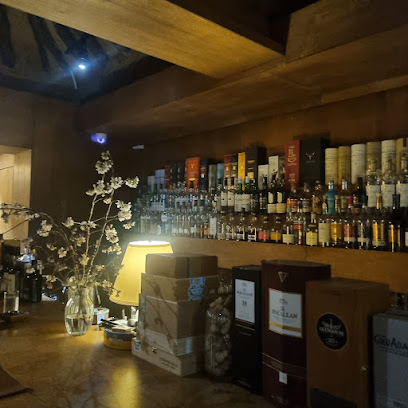
Le Jour J
4.0 km
Experience the elegance of French cuisine and fine wines at Le Jour J, Gyeongju's premier wine bar and restaurant.
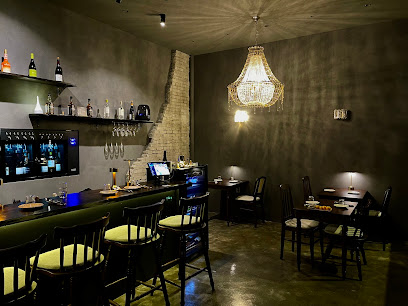
Bar Prep
4.1 km
Discover the best cocktails in Gyeongju at Bar Prep, where every drink is crafted to perfection against the backdrop of ancient tombs.
